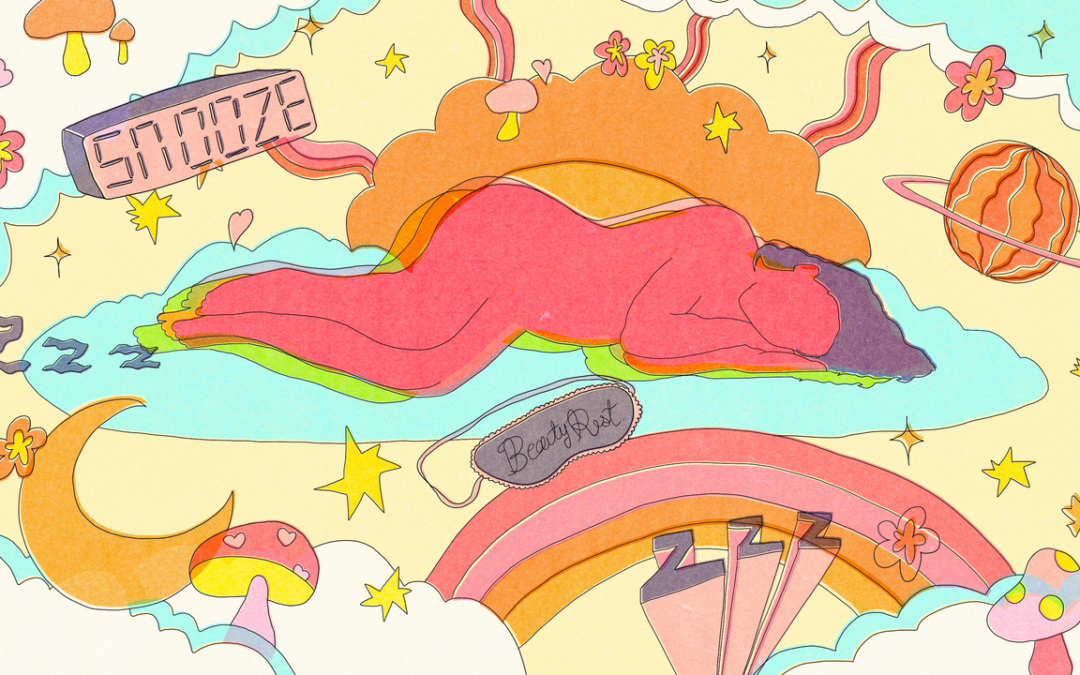The subconscious may seem dangerous and unpredictable, but for many, lucid dreaming is actually a lot less scary than regular dreaming. During a normal dream, you cruise into your emotional inner world as if you’re strapped to a rollercoaster. It could be fun, but it also could be terrifying. And unlike sleep paralysis — an often frightening phenomenon when the body remains paralyzed in a half-dream, half-awake state if abruptly woken out of REM sleep — Daniel A. Barone MD, an associate attending neurologist at New York-Presbyterian and associate professor of neurology at Weill Cornell Medical College, explains that lucid dreaming refers specifically to a style of dreaming, not a sleep experience at large. While lucid dreaming, you’re the one in the driver’s seat. What’s the theme? Where does dream take place? Who is part of the story?
In addition to deepening your relationship with yourself — and possibly your own psychic abilities — lucid dreaming can potentially help those who are spiritual to communicate with loved ones who have crossed over. In many cultures and religions, spirits rely on conduits to deliver messages. But since your subconscious world isn’t tethered to form, loved ones more often visit us in dreams. During a lucid dream, you can actually engage with these entities — and, because your senses remain engaged, you may even enjoy the comforting feeling of a warm embrace.
What does lucid dreaming feel like?
Because you’re aware that you are both sleeping and dreaming in your lucid dream (and that you are actually able to influence what happens in that dream), Cheung says that the experience may feel intense and that your emotions might run high. The dream may feel too real and vivid, which may cause the lucid dream to collapse and result in you waking up.
Becoming aware of consciousness, either in a dream or reality, can be unsettling, too. Dr. Fraga tells Allure, “We tend to process uncomfortable emotional and psychological experiences in our dreams,” and as such, these memories may be triggered during our sleep. Further, Fraga explains, “If the dream affects the person’s ability to get a good night’s sleep, that can affect mental health, especially for people with anxiety or depression who may have trouble sleeping.”
How to lucid dream
Ani Ferlise, an avid lucid dreamer, astrology expert, and founder of spirituality brand Kozmic Ryder, says opening your mind is the first step to success: “You begin [lucid dreaming] by simply turning your awareness to the idea of it. This wakes up your subconscious to the practice.” Ferlise also explains that we actually strengthen our lucid dreaming abilities when we’re awake, so she suggests becoming more aware of your physical surroundings by observing small details about your own body and your surroundings, such as taking note of your hands or feet throughout the day. Activating the senses and grounding oneself also promotes lucid dreaming, and Ferlise encourages using a dream journal to jumpstart your practice. (Her own Lucid Dream Kit is a thoughtfully curated collection of tools Ferlise says can enhance subconscious exploration and get you in the headspace to lucid dream, like an amethyst, calming tea, and an essential oil blend).

